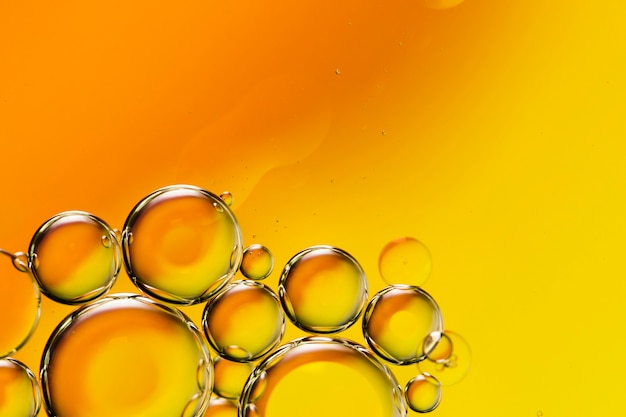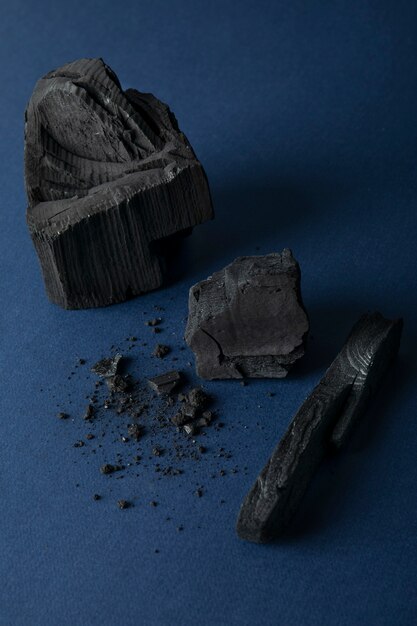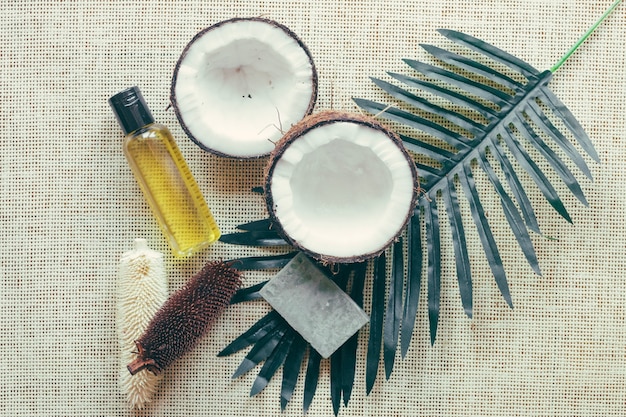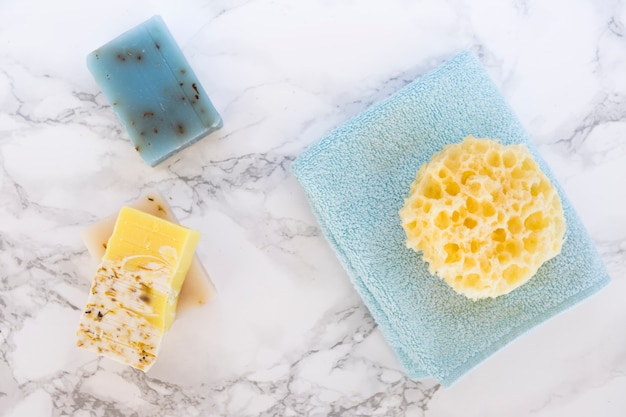
When you mix essential oils for skin application, it’s usually recommended to dilute them with a carrier oil. While most people are familiar with common carrier oils like coconut, olive, jojoba, and sweet almond oil, there are actually many more options available!
Each carrier oil has its own unique properties due to the essential fatty acids and nutrients it contains. These differences make certain oils better suited for specific uses, depending on factors like skin type, shelf life, or application method.
In this guide, we’ll explore 21 different carrier oils, detailing their benefits and uses. We’ll also explain the primary fatty acids found in these oils.
1. Sweet Almond Oil
– Fatty Acids: Oleic acid – 62%, Linoleic acid – 29%, Palmitic acid – 9%
– Benefits: Extracted from almond tree kernels, this oil is rich in vitamin E, promoting skin cell regeneration. It helps balance skin’s natural oils, lock in moisture, relieve inflammation, and protect against sun damage. Suitable for all skin types, it’s great for massage and facial moisturizers.
2. Apricot Kernel Oil
– Fatty Acids: Oleic acid – 70%, Linoleic acid – 23%, Palmitic acid – 4%
– Benefits: Derived from apricot stones, this oil absorbs quickly and has a fine texture, making it ideal for oily skin. Its anti-aging and anti-inflammatory properties make it perfect for facial and body massages.
3. Argan Oil
– Fatty Acids: Oleic acid – 43%, Linoleic acid – 37%, Palmitic acid – 12%
– Benefits: Sourced from Moroccan argan tree fruit, this oil is rich in vitamin A, promoting cellular regeneration. It offers sun protection, aids in healing, and is excellent for anti-aging blends, nail and cuticle care, and hair health.
4. Avocado Oil
– Fatty Acids: Oleic acid – 65%, Linoleic acid – 15%, Palmitic acid – 14%, Palmitoleic acid – 6%
– Benefits: This thick, nourishing oil from avocado fruit is ideal for mature skin and slow to dry. It contains palmitoleic acid, chlorophyll, lecithin, potassium, and vitamins A, D, and E. It’s great for massage blends and treating inflammatory skin conditions.
5. Coconut Oil
– Fatty Acids: Lauric acid – 49%, Myristic acid – 16%, Palmitic acid – 9.5%, Decanoic acid – 8%, Caprylic acid – 7%, Oleic acid – 6.5%
– Benefits: Coconut oil is highly versatile with antioxidant, anti-inflammatory, anti-fungal, and antibacterial properties. It’s perfect for any oil blend unless there’s a coconut allergy or scent clash.
6. Babassu Oil
– Fatty Acids: Lauric acid – 50%, Myristic acid – 20%, Palmitic acid – 11%, Oleic acid – 10%
– Benefits: Similar to coconut oil but less greasy, Babassu oil is suitable for oily skin and provides a cooling sensation. It’s great for summer blends and quick absorption.
7. Black Cumin Seed Oil
– Fatty Acids: Linoleic acid – 58%, Oleic acid – 24%, Palmitic acid – 14%
– Benefits: Extracted from black caraway seeds, this oil has potent anti-cancer, anti-fungal, and antibacterial properties. It’s beneficial for immune function, liver and cardiovascular health, and skin regeneration.
8. Borage Seed Oil
– Fatty Acids: Linoleic acid – 39%, Gamma-Linolenic acid – 20%, Oleic – 18%, Palmitic – 10%
– Benefits: Known for its high GLA content, borage seed oil is excellent for anti-inflammatory and skin-healing purposes. It’s ideal for anti-aging blends and nourishing mature skin.
9. Flaxseed Oil
– Fatty Acids: Alpha-Linolenic acid – 55%, Oleic acid – 20%, Linoleic acid – 15%, Palmitic acid – 7%
– Benefits: Flaxseed oil, rich in ALA, is highly anti-inflammatory and beneficial for conditions like rheumatoid arthritis and eczema.
10. Hazelnut Oil
– Fatty Acids: Oleic acid – 74%, Linoleic acid – 17%, Palmitic acid – 8%
– Benefits: With a mild nutty aroma, hazelnut oil is great for acne-prone skin and other inflammatory conditions. It absorbs easily and pairs well with earthy, spicy, and woody essential oils.
11. Hemp Seed Oil
– Fatty Acids: Linoleic acid – 60%, Alpha-Linolenic acid – 20%, Oleic acid – 12%, Palmitic acid – 6%
– Benefits: Hemp seed oil is a powerful anti-inflammatory and antioxidant. It’s ideal for facial oils and topical pain relief.
12. Jojoba Oil
– Fatty Acids: Eicosenoic acid – 77%, Erucic acid – 12%, Oleic acid – 9%
– Benefits: A wax that mimics human sebum, jojoba oil is deeply nourishing and rapidly absorbed. It’s effective for treating fungal infections and has a long shelf life.
13. Kukui Nut Oil
– Fatty Acids: Linoleic acid – 40%, Alpha-Linolenic acid – 26%, Oleic acid – 25%, Palmitic – 6%
– Benefits: This lightweight oil is excellent for non-greasy blends and is soothing for damaged skin. It’s ideal for moisturizing and treating acne or sunburn.
14. Olive Oil
– Fatty Acids: Oleic acid – 75%, Linoleic acid – 16%, Palmitic acid – 8%
– Benefits: Known for its rich oleic acid content, olive oil is suitable for all skin types. It’s great for moisturizing and repairing damaged hair and blends well with most essential oils.
15. Palm Kernel Oil
– Fatty Acids: Lauric acid – 48%, Myristic acid – 16%, Oleic acid – 15%, Palmitic acid – 8%
– Benefits: Similar to coconut oil, palm kernel oil is rich in vitamins and antioxidants. It’s great for softening, moisturizing, and repairing skin and hair.
16. Pomegranate Seed Oil
– Fatty Acids: Punicic acid – 78%, Linoleic acid – 7%, Oleic acid – 6%, Palmitic acid – 3%, Stearic acid – 3%
– Benefits: This oil is highly antioxidant and anti-inflammatory, boosting skin cell regeneration. It’s excellent for anti-aging and healing damaged skin.
17. Evening Primrose Oil
– Fatty Acids: Linoleic acid – 75%, Gamma-Linolenic acid – 11%, Palmitic acid – 6%, Oleic acid – 6%
– Benefits: With high GLA content, evening primrose oil is great for treating acne, eczema, and promoting healthy hair.
18. Rosehip Seed Oil
– Fatty Acids: Linoleic acid – 47%, Alpha-Linolenic acid – 29%, Oleic acid – 15%
– Benefits: Rich in natural vitamin A, rosehip seed oil is excellent for anti-aging, fading scars, and soothing irritation.
19. Sesame Oil
– Fatty Acids: Oleic acid – 36%, Linoleic acid – 41%, Palmitic acid – 8%, Stearic acid – 5%
– Benefits: This thick oil is highly moisturizing and rich in vitamins E and B-complex. It’s great for dry, irritated skin and revitalizing mature skin.
20. Tamanu Oil
– Fatty Acids: Linoleic acid – 38%, Oleic acid – 34%, Stearic acid – 13%, Palmitic acid – 12%
– Benefits: Tamanu oil is renowned for its skin-healing properties, making it useful in anti-aging blends and for treating acne and inflammatory conditions.
21. Wheat Germ Oil
– Fatty Acids: Linoleic acid – 55%, Palmitic acid – 16%, Oleic acid – 14%, Alpha-Linolenic acid – 7%
– Benefits: High in vitamin E, wheat germ oil is great for promoting skin cell regeneration, repairing damage, and extending the shelf life of other oils.
Primary Fatty Acids in Carrier Oils:
1. Oleic Acid: Found in olive oil; improves cardiovascular health, reduces inflammation, and improves insulin sensitivity.
2. Lauric Acid: Found in coconut and palm kernel oils; anti-microbial, deep moisturizing, and long shelf life.
3. Myristic Acid: Found in coconut and babassu oils; deeply moisturizing and quick absorbing.
4. Capric Acid: Found in coconut and palm kernel oils;



